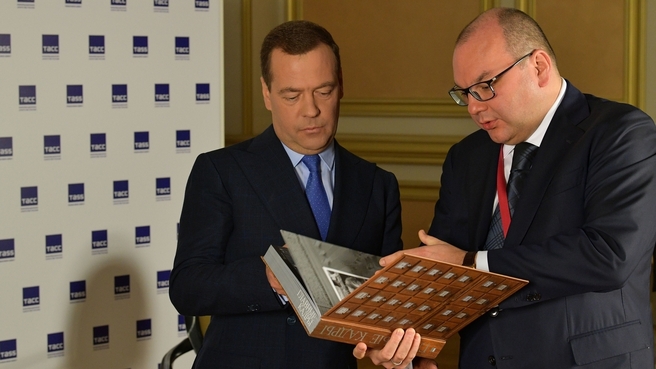The Prime Minister of Russia answered questions from TASS at Russian Investment Forum in Sochi.
Excerpts from the transcript:
Question: As the presidential election nears, it has been said more often that other countries are trying to pressure the Russian economy so as to destabilise the situation. Have you taken note of such attempts? If so, what can we do to resist them?
Dmitry Medvedev: Of course, we have. We know about the various laws and initiatives that some foreign parliaments and officials have advanced. Some of them have even become effective. And more such decisions and demands are being generated. This is mostly being done by the legislative branch, for example in the United States, where new real sanctions have been adopted.
We are monitoring these developments. And we are certainly ready for them, including at a legal level, where we can resist any attempts to get at our economy from all sides and to tighten a stranglehold on it so as to wreck the economic and social reforms that are ongoing in Russia.
But we are also ready at an economic level, which is more important. Creating a mechanism is not that difficult. [It is more important that] our economy has learned to live amid the limitations related to the falling prices of oil and gas, as well as the structure of our economy, which still depends on the export of raw materials and foreign restrictions, primarily sanctions. These past few years, we have been working to create the basis for a modern and diversified economy that can serve our national interests and create products for domestic consumption, including industrial products such as means of production – machine building tools and other equipment and consumer goods, plus the development of agriculture.
Even our adversaries have recognised our achievements, thanks to these pointless sanctions that have helped Russia ensure for example its food security. We have reached self-sufficiency in some areas faster even than we expected. And we have moved forward very quickly in other fields.
We used to have to buy poultry meat from Europe and America, but now we export it. Russia has become the world’s largest grain exporter. And I still remember the time when we had to import wheat from Canada.
Question: There is a lot of talking going on about the digital economy. Are people ready for it? What should be done to avoid any negative side effects of digitalisation?
Dmitry Medvedev: The state must get its priorities right, adopt regulations on the most important matters and the rapidly rising technology in the sphere of the digital economy and life in the media, as well as sign international conventions. The situation is completely inadequate in this respect, but we must do all this to secure our future. Everyone is in agreement on this subject, yet we have been unable to work out a deal.
Question: Do we have allies in this sphere?
Dmitry Medvedev: We do have allies. Some countries have admitted the need for international regulation. By the way, they do not control the relevant processes. Why do our American friends refuse to do anything in this field? It is because they already have acts that regulate all these processes, and so they do not need any international rules. They are satisfied with the domain name system and everything else in this area, which initially was developed in the United States anyway. They don’t want to internationalise it, but we do. We need to understand what goes on when it comes to this. On the other hand, isolating any segments of this is bad policy. We see that the internet (and the digital world in general) implies not only problems but also huge opportunities, including digital services plus online education. We must keep this up.










